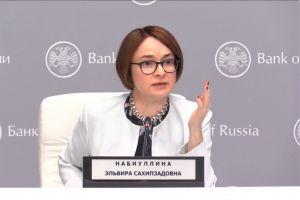Russia’s Central Bank Ready to Test Stablecoins + More News
Crypto Briefs is your daily, bite-sized digest of cryptocurrency and blockchain-related news – investigating the stories flying under the radar of today’s crypto news.

Regulations news
- Russia’s Central Bank has said it is ready to test stablecoins in regulatory sandbox conditions. The bank’s governor, Elvira Nabiullina, is known as one of Russia’s greatest arch-skeptics. But per Interfax, Nabiullina now says she wants companies who “want to issue tokens secured by assets” to test their coins in Russian sandboxes – with the possibility of attaining official approval.
- The government of Uzbekistan looks set to push ahead with a tight crypto regulations drive, after announcing plans to severely restrict its citizens from buying cryptocurrencies. Per Cryptocurrency Tech, the National Agency for Project Management, a government agency that reports directly to the country’s president, wants to stop just short of an absolute ban. The agency states that Uzbek citizens who want to buy tokens will have to do so via one of two, highly regulated, license-holding cryptocurrency exchange platforms. Moreover, would-be traders will have to be aged over 18 years and will have to navigate a number of strict know-your-customer compliance measures.
- South Korea’s parliament looks set to table a debate on a forthcoming crypto regulations law for January, reports Paxnet. Leaders in the National Assembly state that they hope to enshrine the Financial Action Task Force (FATF)’s crypto guidelines into South Korean law. If passed, the draft Special Financial Transactions Information Act would be the nation’s first piece of crypto-specific legislation.
Blockchain news
- China will gradually expand the scope of its blockchain cross-border financing pilot platform. According to Lu Lei, deputy head of the State Administration of Foreign Exchange (SAFE) quoted by Reuters, the government will push forward a prospective study on foreign exchange reforms to deal with cryptocurrency, as well as to explore the creation of the foreign exchange regulation and technology system under the new situation.
- South Korea’s Coinplug has unveiled what it is calling a blockchain-powered refugee ID solution. The company has been working on a range of decentralized ID (DID) solutions with South Korean banks, telecoms companies and IT enterprises – and has previously announced plans to expand into the Latin American market. Per Paxnet, Coinplug is working on implanting its new solution with the UNHCR, the UN Refugee Agency.
- The Shenzhen Stock Exchange (SSE) launched an index for blockchain firms, tracking the performance of 50 blockchain companies. Per the exchange, the new index will be based on the stocks of 50 companies listed on the SSE that participate in the blockchain industry, and it’ll be updated twice a year, in June and December. The top 50 blockchain-related stocks are ranked based on their average daily market value over the past six months.
- Vitalik Buterin, co-founder of Ethereum (ETH), published an alternative proposal that would hasten the arrival of Ethereum 2.0. He says that the proposal achieves the goal of removing the Proof of Work (PoW) chain and moving everything onto the beacon chain on an accelerated schedule. It requires stateless clients, but not stateless miners and not webassembly, and so requires much less rearchitecting to accomplish, Buterin explains.
Decentralization news
- Privacy coin Zcoin (XZC) launched its Zcoin Crowdfunding System (ZCS) as a key step on its way in decentralizing funding and decision making of the project. The announcement says that after recently presenting its plans to further decentralize the project and remove any single point of failure, their plans for the ZCS is to serve as a transition from funding directly from the block reward to a donation model, and they’ll begin funding ancillary tasks such as non-core development, third party integrations and community management and events.
Cryptocurrency exchange news
- Binance started supporting purchasing crypto by binding Visa cards to user’s account. Users can now select an amount of EUR or GBP on the “Buy Crypto” page to bind their Visa card to the account and use it to buy crypto, such as BTC, ETH, BNB, and XRP, says the exchange. For now, only Visa credit and debit cards issued within the European Economic Area are supported, while support for Mastercard and additional currencies should be added in the near future.
Mining news
- A South Korean court has convicted a 28-year-old man on charges of fraud after he was found guilty of illegally distributing Chinese crypto mining rigs and duping buyers out of thousands of dollars’ worth of funds. The man was also convicted on smuggling after customs officials found he had brought “dozens” of rigs into the country illegally. The court handed the man an eight-month jail sentence and a two-year 80-hour community service order, reports SBS.




